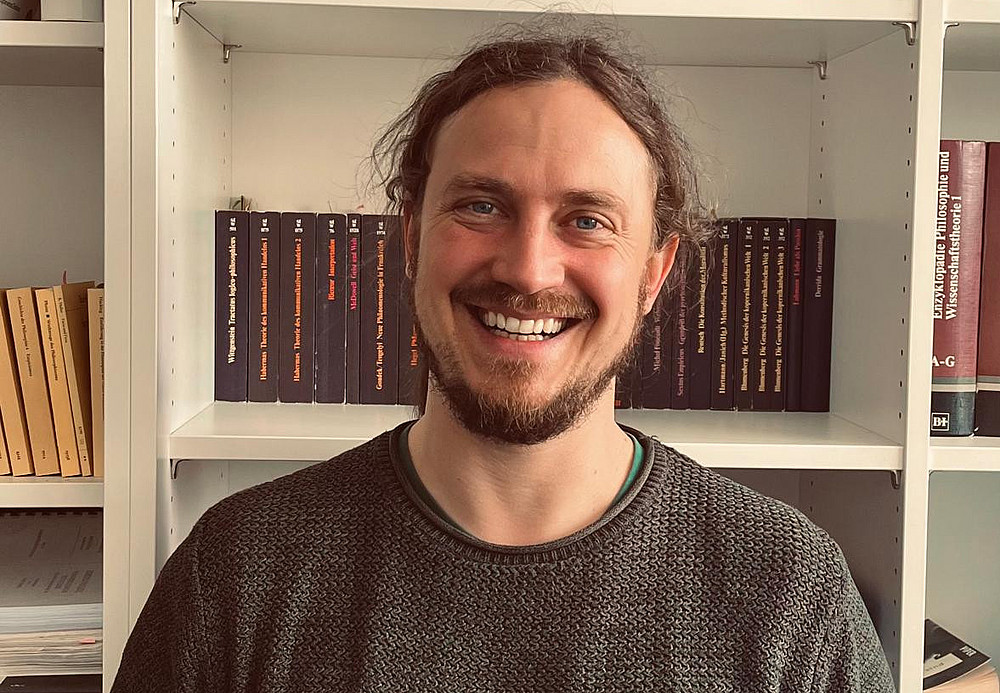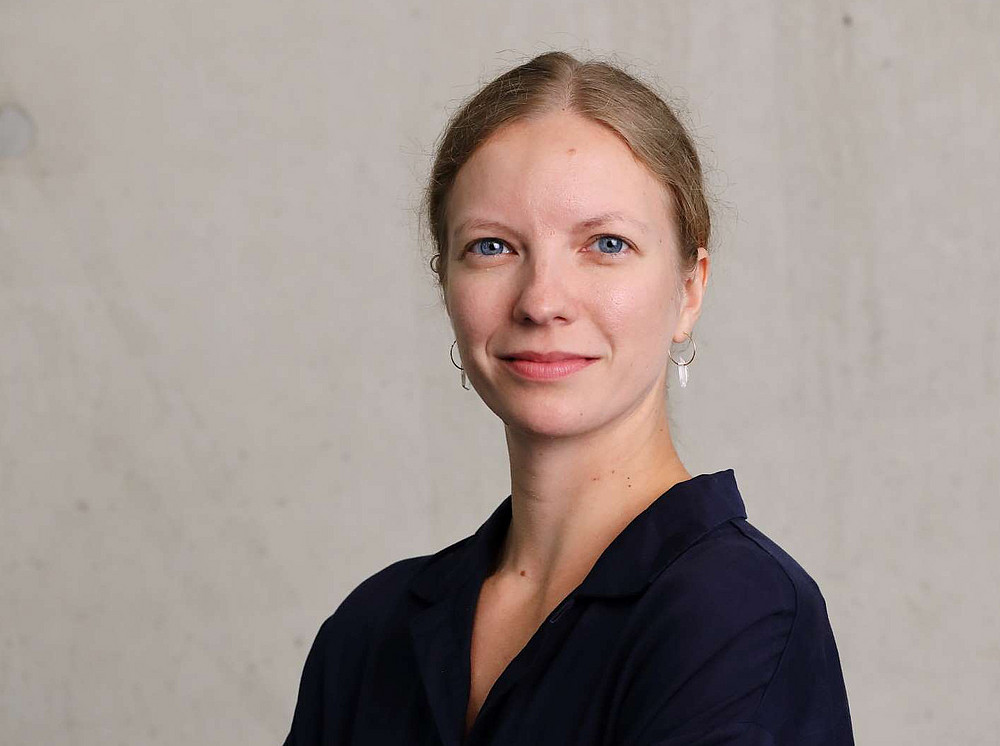Bernhard Geissler
Bernhard Geißler's research interests include phenomenology, philosophical anthropology, the philosophy of psychology, psychopathology and psychoanalysis, as well as the philosophy of emotions. In his dissertation, he deals with the nature of despair, the perception of values and self-perception. In doing so, he pursues a phenomenological/philosophical-focussed but always interdisciplinary-oriented research approach. In addition to his work at the University of Graz, Bernhard Geißler works as a psychotherapist (in training under supervision) and philosophical counsellor in his own practice.


Antonia Heigl
Antonia Heigl is a doctoral student at the Department of Phenomenology at the Institute of Philosophy and an art mediator. She uses phenomenology as a philosophical method to better understand what it means when an object is genuinely experienced as a work of art (and not "merely" intellectually categorised as such). Antonia Heigl's research focuses on aesthetics and the philosophy of art. She is head of art education at the Dom Museum Vienna.
Jonatan Horvat
Jonatan Horvat studied English and American Studies at the University of Graz. He is specifically interested in English and American poetry and drama, but his actual interdisciplinary research interests lie in the intersections between literature and the other arts, especially music in the sense of adaptation theory and intermediality theory. In his master's thesis, he focussed on the musical and literary representation of the character of Salome in Richard Strauss' opera of the same name, and his dissertation examines the theme of death and redemption in Benjamin Britten's operas based on English and American texts. His musical focus is not limited to classical music and opera research, but also includes aspects of popular music (pop song analysis), film music and jazz music. With the recent incorporation of ekphrasis into his research, he has also extended his interests to the medium of the visual arts.


Joep Janssens
Joep Janssens has been working as a university assistant in the Department of Musicology at the Institute of Art and Musicology since July 2024. After completing his bachelor's degree in forestry in the Netherlands, he studied musicology at the universities of Graz and Vienna. As part of the Perception focus area, he is working on his dissertation on the role of the politicised discourse of the 'German forest' in 19th century choral music, bringing together music, perception of nature, identity and politics in the humanities.
Joep Janssen's research interests lie in the interdisciplinary approach to music history, with a particular focus on analysing musical topoi and the connection between images of nature, politics and identity in the 19th century. In his bachelor's thesis, he analysed the historical development of the topos of ecstasy in Alexander Scriabin's piano sonatas. In his master's thesis on the musical topoi of the forest in 19th century piano music, presented at the Austrian Society for Music, he combined musical score analysis with literary, social and environmental historical processes. As part of the international conference Music and Climate Change at the Folkwang University of the Arts in Essen, he delved further into the connection between music history and landscape perception. Using the appearance of two types of landscape in the piano character piece, he presented the thesis that art played an important role in the context of changing behaviour towards the environment in the 19th century.
Julia Kaidisch
Julia Kaidisch is a doctoral candidate and project collaborator at the Institute of Philosophy, Department of History of Philosophy. Her research focuses on philosophical aesthetics, value theory and the history of early modern and analytical philosophy. In addition to her philosophical training, she also completed a Bachelor's degree in German Studies in Graz.
In her dissertation project, which is both systematic and philosophical-historical in nature, she is focussing on Arthur C. Danto's attempt to define the essence of art. Her dissertation is part of the FWF project "The Re-Import of Analytic Philosophy to German-Speaking Academia". Her project work also centres on her engagement with Rudolf Haller's aesthetic reflections and Ludwig Wittgenstein's philosophy.
In her Master's thesis entitled "Alexander Gottlieb Baumgarten, a pioneer of artistic research?" (2022), she analysed parallels and differences between Baumgarten's philosophical aesthetics and theories on artistic research.
